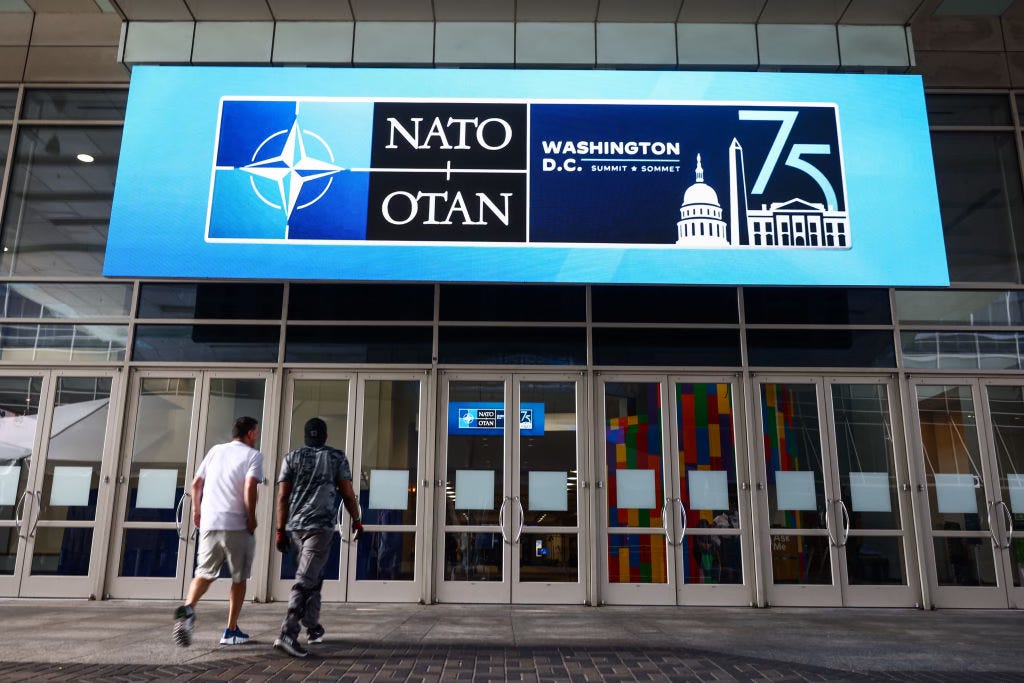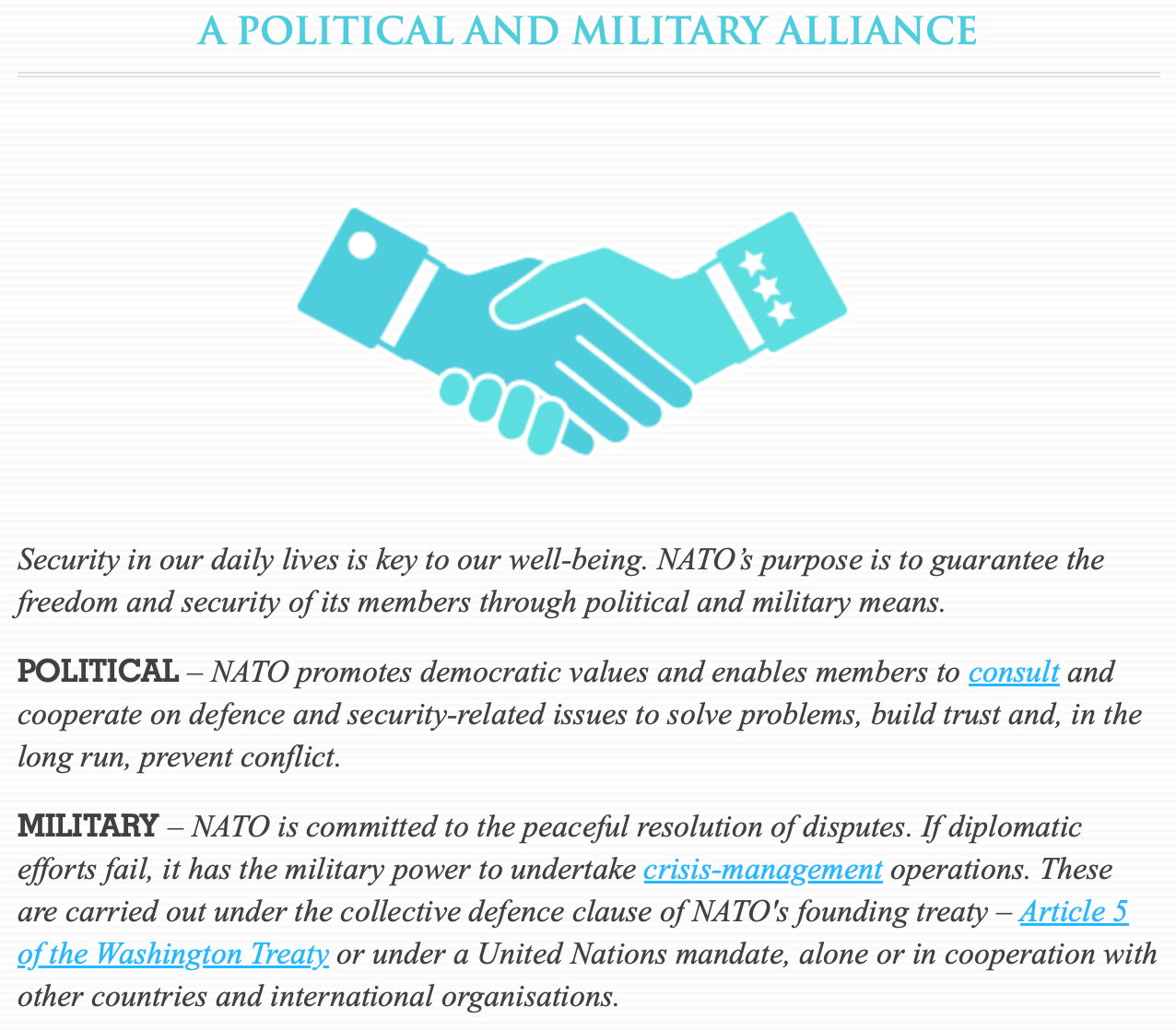NATO is More Popular Than Most U.S. Government Institutions
But partisan divides are emerging on the long-standing security alliance.

As world leaders gather in Washington this week for the 75th anniversary celebration of the North Atlantic Treaty Organization (NATO), U.S. public opinion remains largely favorable towards the security alliance between 32 nations representing one billion people on both sides of the Atlantic.
Interestingly, looking at Pew Research Center data from 2023 and 2024, NATO receives higher favorability ratings from Americans than all but a handful of the nation’s own most popular agencies such as the National Park Service, the U.S. Postal Service, NASA, and the Social Security Administration.
NATO is far more popular (58 percent favorable) than both the U.S. Supreme Court (44 percent) and the U.S. Congress (26 percent) and also receives higher favorable ratings from Americans than the United Nations (52 percent). In terms of other security and law enforcement agencies, NATO receives higher favorable ratings than both the FBI (52 percent) and the Department of Homeland Security (51 percent). Pew did not include the Defense Department in a comparable favorability test but we know from other data that positive views of the U.S. military exceed 80 percent making the military the most trusted and well liked arm of the U.S government.
In terms of the perceived benefits of NATO participation, Pew’s data from April 2024 finds that two-thirds of Americans overall believe the U.S. benefits a great deal or a fair amount from being a member of NATO, while around three in ten feel that the U.S. benefits either not too much or not at all. The perceived benefits of NATO membership for the U.S. outpace those for other multilateral organizations including the United Nations (60 percent) and the World Health Organization (58 percent).
Even with high overall ratings from Americans, partisan splits on NATO have emerged in recent years. For example, 75 percent of self-identified Democrats hold a favorable view of NATO compared to 43 percent of Republicans, a 32-point gap. And while more than eight in ten Democrats believe the U.S. benefits a great deal or a fair amount from NATO membership, a little more than half of Republicans feel similarly.
What explains the partisan gap? It appears to be mostly about spending, not Russia. For example, examining the most recent Pew data, Republicans are more likely than Democrats to think that our European allies need to spend more on defense (58 percent versus 42 percent, respectively). Likewise, Republicans and Democrats are sharply divided on U.S. spending for the war in Ukraine—nearly half of Republicans believe the U.S. is providing too much assistance to Ukraine compared to only 16 percent of Democrats.
Despite the differences in opinions about U.S. spending in relation to both NATO and Ukraine, strong majorities of both party identifiers view Russia as our enemy and nearly all Americans distrust Russian President Vladimir Putin.
Nearly six in ten Republicans and seven in ten Democrats say Russia is an enemy of the U.S., and nearly nine and ten voters overall say they have no confidence that Putin will do the right thing regarding world affairs.
As NATO celebrates its 75th anniversary defending collective security interests here and in Europe, American views of the alliance remain robust if slightly scuffed by recent events.
When people get nervous about future support for the NATO alliance in America, remember it could be much worse—like Americans’ views of their own Supreme Court and Congress.






